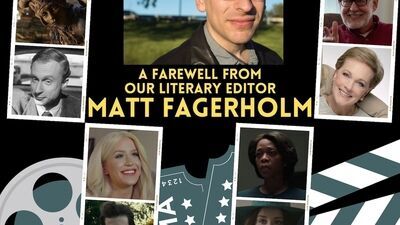
Werner Herzog on “Into the Inferno”
That’s a very good and unexpected example you have brought up. It has always been my aim to find that sort of passion and figure out how to transform it into cinema. Treadwell’s footage was almost like a diary, and he had always dreamt of becoming the movie star in his own gigantic production. He rightfully did that because he was, in a way, a star and somebody who brought us footage that nobody else has ever captured and never will again. That spirit of immersion and curiosity and awe and participation is something which Treadwell and I have in common, Clive and I have in common, and Roger Ebert had in common with us as well.

Isabelle Huppert on “Elle”
With the threat of the world becoming so misogynistic, I think it’s important to show women like this who avoid man’s weaknesses as much as possible. The men that Michèle encounters are mediocre or fragile or failures. In a way, the film takes place in a post-male era where men have faded into something that is very difficult for women to connect with.

Paul Schrader on “Dog Eat Dog”
Slow cinema isn’t really religious, it is more meditative and contemplative. I don’t know exactly how slow my film is going to be. There’s a whole buffet of slow techniques, and different directors select different items from the buffet. A Béla Tarr film is not the same as a Dietrich Brüggemann film. I’m now trying to figure out where my appreciation of slow cinema and my gut talent meet, so it can be my film, not just an imitation of somebody else’s film. There was a quote in my book from a Dutch theologian who said that art and religion are parallel lines which meet in infinity and resolve in God.

Frank Oz on “Muppet Guys Talking”
We’re fortunate to have had so many fans around the world for so long. It’s almost like the Muppets are a Trojan horse in the way that we want everyone to have fun with them, but inside, there’s something deeper. Without being didactic or saying some message, Victoria wants the film to champion the feeling of inclusion, of collaboration, of empathy and all those things that are hard to come by these days.

John Travolta on “The People vs. O.J. Simpson”
When you deal with Shapiro, you’re not just dealing with a lawyer, you’re dealing with the royal lawyer, and that comes across in his affected voice and demeanor. He used those characteristics in the way that an actor would use them. Those bits of behavior are tools that invite the audience to get very comfortable with my characters. Look at Vincent Vega in “Pulp Fiction.” So much of what one enjoyed about that character was watching how he behaved. [in Vega voice] His speech was slower, his shoulders were slumped when he ate, he rolled his cigarette and lit it in a certain way, and it looked as if he were sauntering through mud to get to a door.

